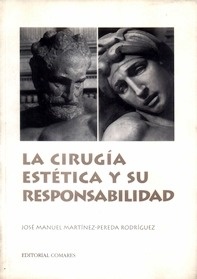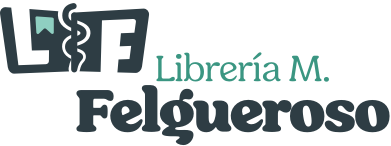This ground-breaking book advances the fundamental debate about the nature of addiction. As well as presenting the case for seeing addiction as a brain disease, it brings together all the most cogent and penetrating critiques of the brain disease model of addiction (BDMA) and the main grounds for being skeptical of BDMA claims.
The idea that addiction is a brain disease dominates thinking and practice worldwide. However, the editors of this book argue that our understanding of addiction is undergoing a revolutionary change, from being considered a brain disease to a disorder of voluntary behavior. The resolution of this controversy will determine the future of scientific progress in understanding addiction, together with necessary advances in treatment, prevention, and societal responses to addictive disorders. This volume brings together the various strands of the contemporary debate about whether or not addiction is best regarded as a brain disease. Contributors offer arguments for and against, and reasons for uncertainty; they also propose novel alternatives to both brain disease and moral models of addiction. In addition to reprints of classic articles from the addiction research literature, each section contains original chapters written by authorities on their chosen topic. The editors have assembled a stellar cast of chapter authors from a wide range of disciplines neuroscience, philosophy, psychiatry, psychology, cognitive science, sociology, and law including some of the most brilliant and influential voices in the field of addiction studies today.
The result is a landmark volume in the study of addiction which will be essential reading for advanced students and researchers in addiction as well as professionals such as medical practitioners, psychiatrists, psychologists of all varieties, and social workers.
Table of Contents
General introduction
Nick Heather, Matt Field, Antony C. Moss, and Sally Satel
SECTION I
FOR THE BRAIN DISEASE MODEL OF ADDICTION
1. Introduction to Section I
Matt Field, Antony C. Moss, Sally Satel, and Nick Heather
2. Addiction is a brain disease, and it matters
Alan I. Leshner
(Reprinted from Science, 278, 45 47, 1997)3. Neurobiologic advances from the brain disease model of addiction
Nora D. Volkow, M.D., George F. Koob, Ph.D., and A. Thomas McLellan, Ph.D.
(Reprinted from New England Journal of Medicine, 374, 363 371, 2016)
4. Time to connect: bringing social context into addiction neuroscience
Markus Heilig, David H. Epstein, Michael A. Nader and Yavin Shaham
(Reprinted from Nature Reviews Neuroscience, 17, 592 599, 2016)
5. Drug addiction: updating actions to habits to compulsions ten years on
Barry J. Everitt and Trevor W. Robbins
(Reprinted from Annual Review of Psychology, 67, 23 50, 2016)
6. Is addiction a brain disease? The incentive-sensitization view
Kent C. Berridge
7. Addiction is a brain disease (but does it matter?)
Gabriel Segal
SECTION II
AGAINST THE BRAIN DISEASE MODEL OF ADDICTION
8. Introduction to Section II
Sally Satel, Nick Heather, Antony C. Moss, and Matt Field
9. Giving the neurobiology of addiction no more than its due
Wayne Hall, Adrian Carter, and Cynthia Forlini
10. The brain disease model of addiction: is it supported by the evidence and has it delivered on its promises?
Wayne Hall, Adrian Carter, and Cynthia Forlini
(Reprinted from Lancet Psychiatry, 2, 105 110, 2015)
11. Brain disease model of addiction: why is it so controversial?
Nora D. Volkow and George Koob
(Reprinted from Lancet Psychiatry, 2, 677 679, 2015)
12. Brain disease model of addiction: misplaced priorities?
Wayne Hall, Adrian Carter, and Cynthia Forlini
(Reprinted from Lancet Psychiatry, 2, 867, 2015)
13. Addiction and the brain-disease fallacy
Sally Satel and Scott O. Lilienfeld
(Reprinted from Frontiers in Psychiatry, 4, 141, 2014)
14. Recovery is possible: overcoming addiction' and its rescue hypotheses
Derek Heim and Rebecca L. Monk
15. Superpower rivalry, the American Grand Narrative, and the BDMA
Bruce K. Alexander
16. My brain disease made me do it: bioethical implications of the Brain Disease Model of Addiction
Frederick Rotgers
17. Addiction is a human problem, but brain disease models divert attention and resources away from human-level solutions
Richard Hammersley
18. Before rock bottom'? Problem framing effects on stigma and change among harmful drinkers
James Morris
19. Brain change in addiction: disease or learning? Implications for science, policy, and care
Marc Lewis
20. Brains or persons? Is it coherent to ascribe psychological powers to brains?
Tim Leighton
21. The persistence of addiction is better explained by socioeconomic deprivation-related factors powerfully motivating goal-directed drug choice than by automaticity, habit or compulsion theories favored by the brain disease model
Lee Hogarth
22. Addiction and criminal responsibility: the law's rejection of the disease model
Stephen J. Morse
23. One cheer for the brain-disease interpretation of addiction
Gene M. Heyman
SECTION III
UNSURE ABOUT THE BRAIN DISEASE MODEL OF ADDICTION
24. Introduction to Section III
Nick Heather, Sally Satel, Matt Field, and Antony C. Moss
25. In search of addiction in the brains of laboratory animals
Serge H. Ahmed
26. Addiction treatment providers' engagements with the Brain Disease Model of Addiction
Anthony Barnett, Michael Savic, Martyn Pickersgill, Kerry O'Brien, Dan I. Lubman, and Adrian Carter
27. Balancing the ethical and methodological pros and cons of the BDMA
Susanne Uusitalo and Jaakko Kuorikoski
28. The making of the epistemic project of addiction in the brain
Matilda Hellman and Michael Egerer
29. Addiction and the meaning of disease
Hanna Pickard
30. The pitfalls of recycling substance-use disorder criteria to diagnose behavioral addictions
Maèva Flayelle, Adriano Schimmenti, Vladan Starcevic and Joël Billieux
SECTION IV
ALTERNATIVES TO THE BRAIN DISEASE MODEL OF ADDICTION
31. Introduction to Section IV
Antony C. Moss, Matt Field, Sally Satel, and Nick Heather
32. Addiction is socially engineered exploitation of natural biological vulnerability
Don Ross
(Reprinted from Behavioural Brain Research, 386, 112598 Online, 2020)
33. Toward an ecological understanding of addiction
Darin Weinberg
34. Addiction biases choice in the mind, brain, and behavior systems: beyond the brain disease model
Paul F. M. J. Verschure and Reinout W. Wiers
35. Multiple enactments of the brain disease model: which model, when, for whom, and at what cost?
Helen Keane, David Moore, and Suzanne Fraser
36. The social perspective and the BDMA's entry into the non-medical stronghold in Sweden and other Nordic countries
Jessica Storbjörk, Lena Eriksson, and Katarina Winter
37. Beyond the medical model: addiction as a response to trauma and stress
Gabor Maté
38. Psychotherapeutic strategies to enhance motivation and cognitive control
Frank Ryan
39. Addiction is not (only) in the brain: molar behavioral economic models of etiology and cessation of harmful substance use
Samuel F. Acuff, Jalie A. Tucker, Rudy E. Vuchinich, and James G. Murphy
40. Understanding substance use disorders among veterans: virtues of the Multitudinous Self Model
Serife Tekin, Alicia A. Swan, Willie J. Hale, and Mary Jo Pugh
41. How an addiction ontology can unify competing conceptualizations of addiction
Robert M. Kelly, Janna Hastings, and Robert West
42. Looping processes in the development of and desistance from addictive behaviors
Anja Koski-Jännes
43. Recovery and identity: a socially focused challenge to brain disease models
Beth Collinson and David Best
44. Replacing the BDMA: a paradigm shift in the field of addiction
Bruce K. Alexander
Concluding comments
Nick Heather, Antony C. Moss, Matt Field, and Sally Satel

